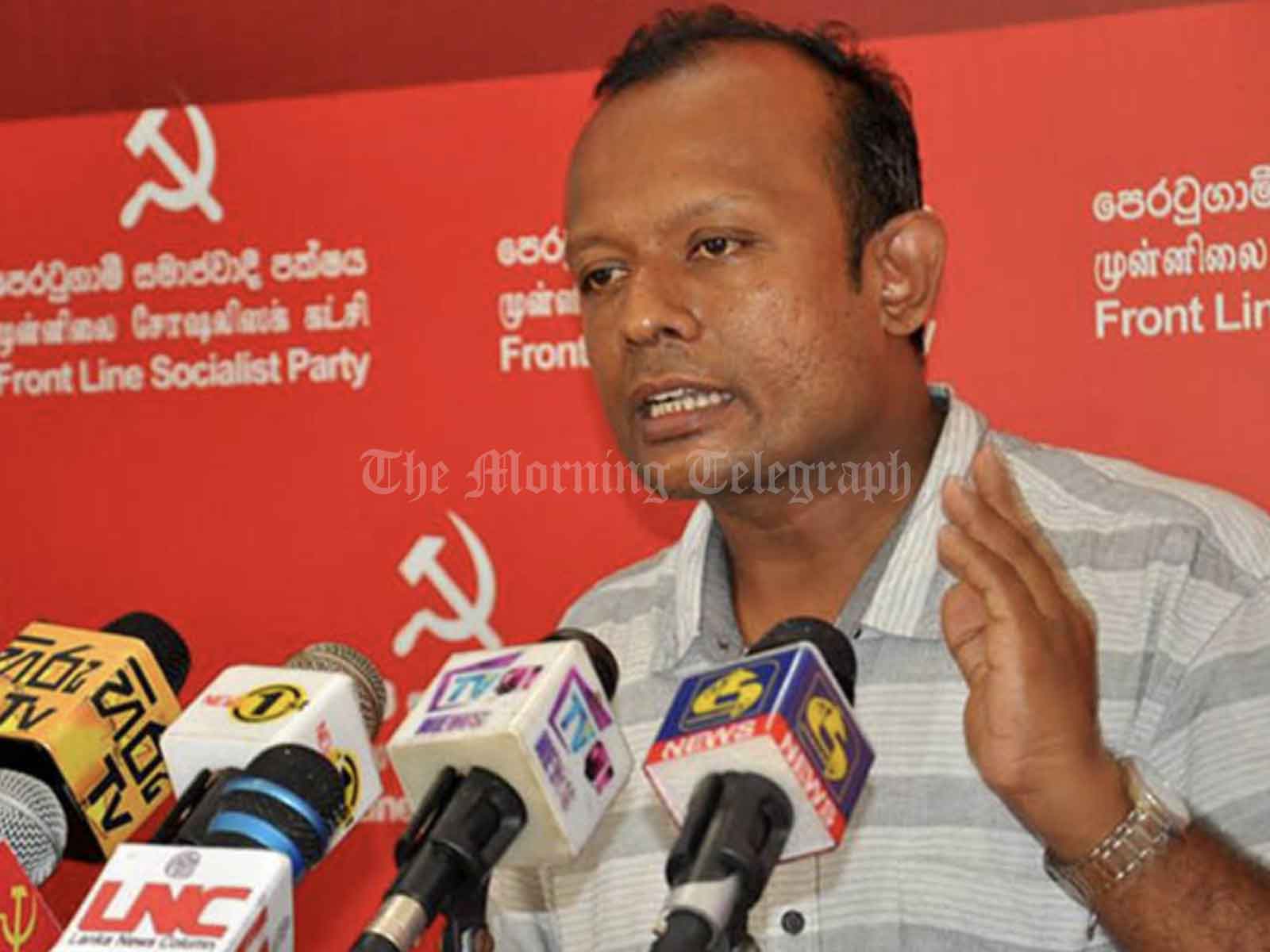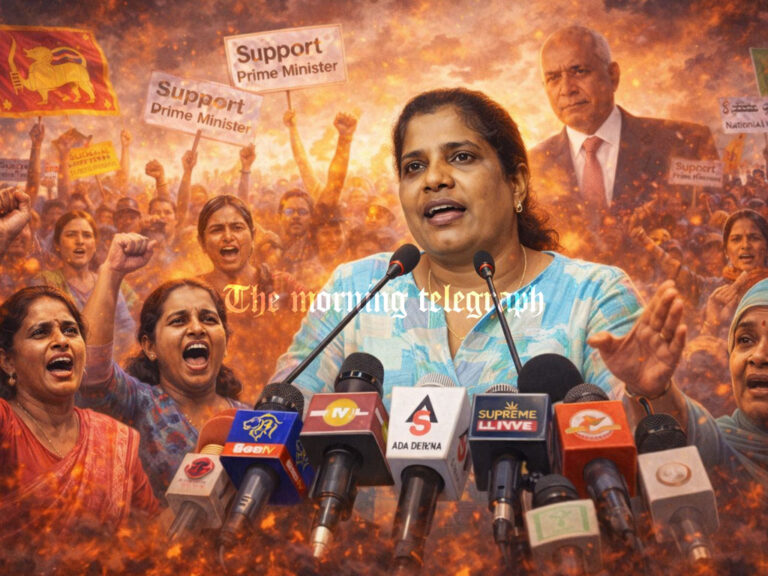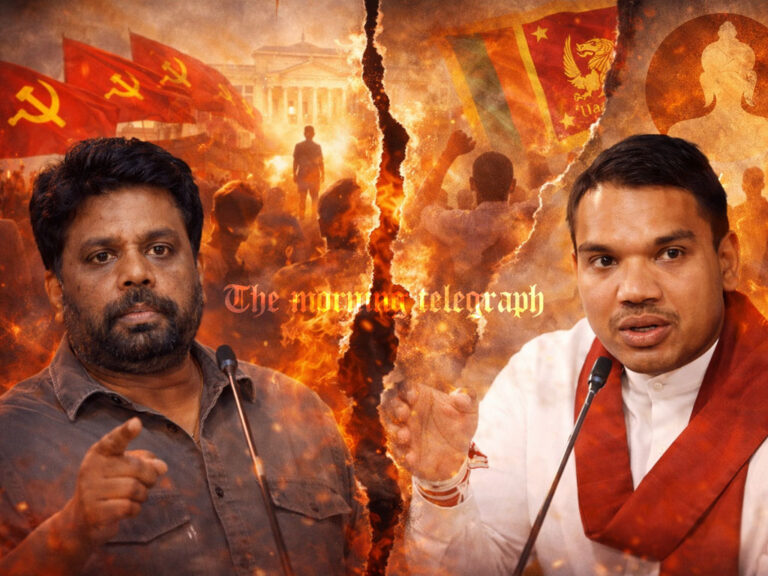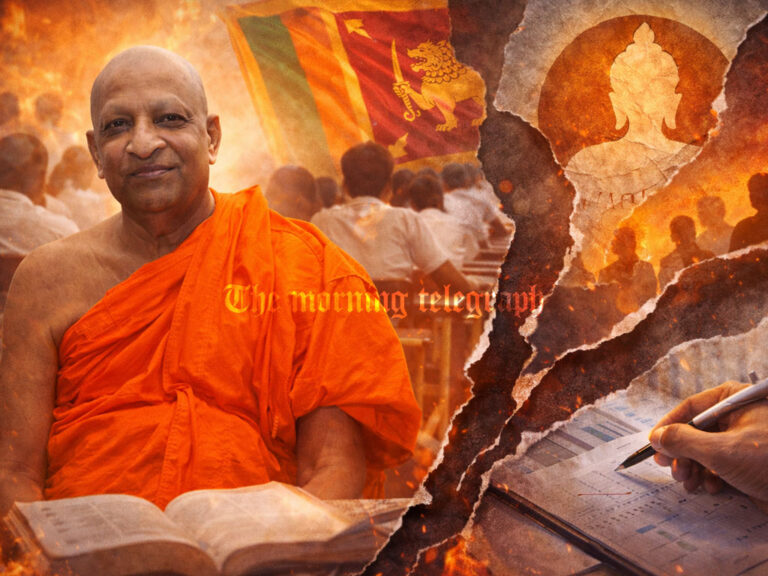
The Front Line Socialist Party (FSP) has harshly criticized the government’s recent foreign debt restructuring agreement, labeling it as an economic disaster and calling for those responsible to be treated as criminals. Pubudu Jagoda, the VSP’s Education Secretary, speaking at a press conference in Colombo, declared that the agreement would severely compromise the country’s financial future, with citizens paying the price until 2038.
Jagoda highlighted several key concerns about the agreement. According to the Ministry of Finance’s report as of June 30, 2024, Sri Lanka’s total foreign debt amounted to $12.2 billion in multi-party loans, $1.6 billion in bilateral loans, and $14.7 billion in commercial loans. Out of the commercial debt, $12.5 billion was in the form of International Sovereign Bonds (ISBs). These figures only reflect the principal amounts, excluding interest payments.
The restructuring, signed on July 3, extended repayment periods for ISBs that were initially set to mature in 2030 to 2038. Additionally, the interest rate was set at 8.2% for these bonds, higher than the original rates of 5%, 6%, or 7%. Jagoda emphasized that this agreement means Sri Lanka will have to pay approximately $19 billion by 2038, which is $2.7 billion more than previously owed.
Jagoda condemned the government’s move to restructure the debt with a higher interest rate, saying it went against normal practices of debt negotiation. “Usually, we negotiate with creditors to reduce the debt burden, but in this case, the government has agreed to pay more,” he said. He also criticized the decision to pay advisory firms Clifford and Lazard over $11.5 million in service fees, arguing that they facilitated an agreement harmful to the country.
He stressed that this restructuring is not providing any real relief to Sri Lankans. The government claims to have restructured 40.3% of the country’s debt, allegedly saving $3 billion, but Jagoda called this “false information.” He clarified that what actually happened was the creation of a new payment plan for 40% of the debt, without any tangible financial benefit for the country.
Jagoda warned that the agreement poses a long-term trap for Sri Lanka. He noted that from 2025 to 2027, Sri Lanka’s gross domestic product (GDP) must reach a specific target of $6.5 billion in order to keep interest rates from rising further. If the economy falls short of that target, Sri Lanka will be liable for even higher interest rates. While the interest rates have been reduced to 7.5% until 2032 under the new agreement, they will increase again to as much as 9% after that period.
Jagoda also pointed out that the agreement unfairly impacts Sri Lanka’s future growth prospects. Any increase in domestic production beyond the agreed limits could result in higher loan payments with elevated interest rates. He called this clause a “trap,” designed to stifle economic growth and keep the country indebted.
Another controversial aspect of the agreement involves local financial companies. The restructuring allows these companies to repay their debts in Sri Lankan rupees, while international creditors would continue to receive payments in dollars. Jagoda argued that this provision was tailored to benefit the wealthy elites and domestic financial institutions, rather than providing relief to ordinary citizens or the economy at large.
Jagoda expressed concerns about the legal provisions of the agreement. Currently, debt agreements are subject to U.S. law, which provides certain protections for debtors. However, the restructuring allows for the transfer of legal jurisdiction to British law if 20% of creditors agree. Jagoda warned that British law lacks the protections available under U.S. law, which could make it harder for Sri Lanka to negotiate debt relief in the future.
Jagoda also pointed out that the International Monetary Fund (IMF) has not yet given final approval to this restructuring agreement, despite the government’s claims. He criticized the government for pushing this deal forward without a solid IMF agreement, warning that it sets the stage for future political manipulation.
He accused the government of trying to secure a quick deal before elections to create the illusion of economic progress. “Any future government will be tied to this agreement, unable to make changes. This is a trap for both the country and its leaders,” he said, adding that citizens will be burdened with unfair debt payments for decades.
The Front Line Socialist Party urged the public to recognize the gravity of the situation and to intervene before it’s too late. Jagoda called for nationwide protests and legal action to halt the agreement, describing it as an economic catastrophe that will cripple Sri Lanka for years to come.
“This is not just an issue for today, but for future generations. We must act now to prevent further harm,” he concluded.
The Front Line Socialist Party’s opposition to the foreign debt restructuring deal highlights growing concerns about the country’s economic future. Jagoda’s call to bring those responsible for the agreement to court underscores the party’s belief that the restructuring is not just financially reckless but also a violation of the public trust.




